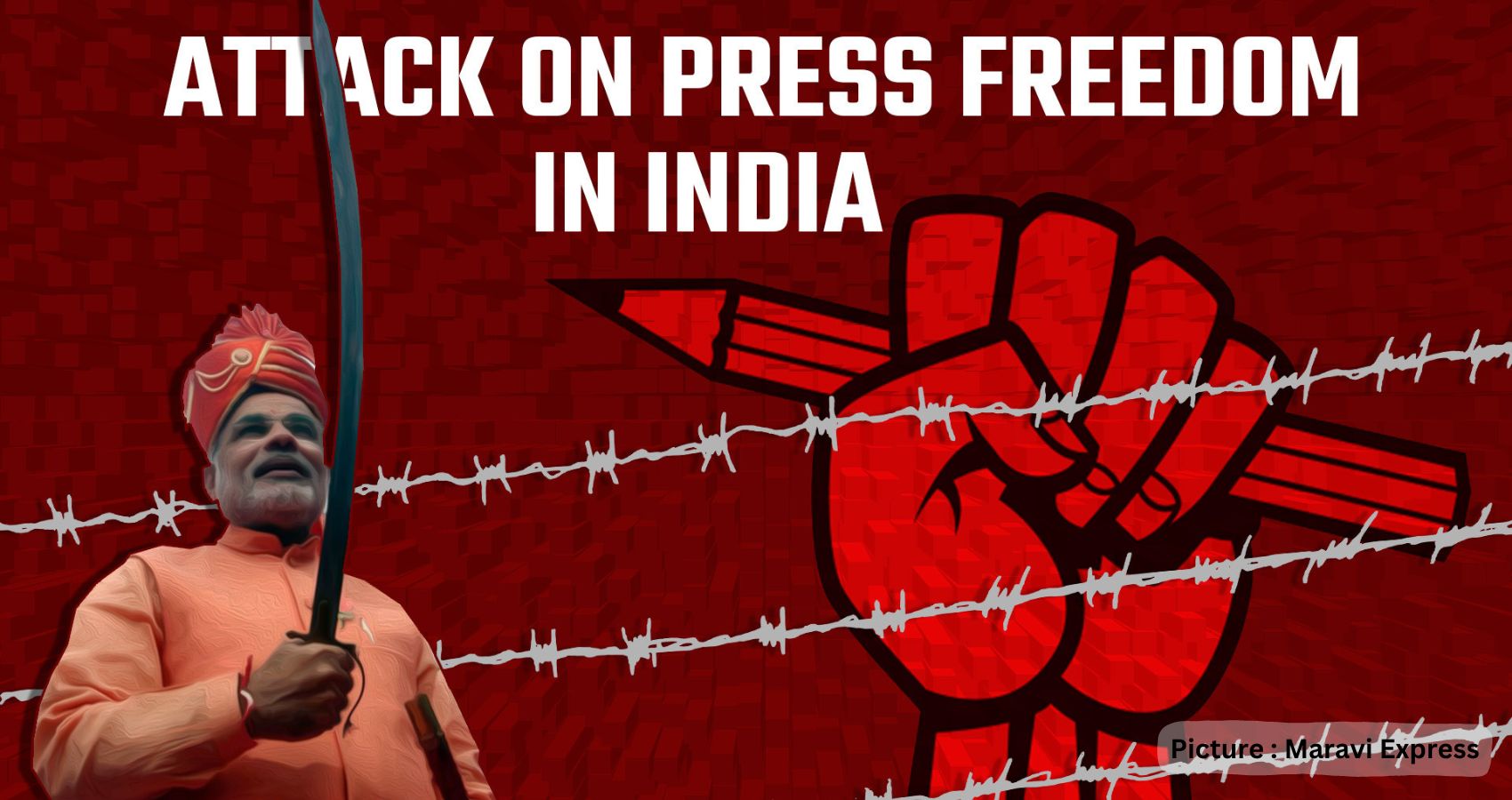Indian authorities are increasingly targeting foreign journalists and online critics for their criticism of government policies and practices, including by prosecuting them under counterterrorism and sedition laws. Recent, tax crackdown on the BBC, weeks after it aired a documentary critical of PM Modi has made news around the world. But foreign correspondents based in the country say this is not the first act of hostility by the Modi government. Since 2019, they allege they have been facing visa uncertainty, denial of travel permits, and even deportation threats, prompting them to conduct internal surveys to capture the extent of the harassment. According to a survey conducted by Journalists, who are members of the Foreign Correspondents’ Club, the government wanted to suppress coverage of the persecution of religious minorities in India and regions such as Kashmir and Assam. Many left anonymous comments in the surveys stating that they had been “summoned” by officials and ministers and shown “files” and “spreadsheets” detailing their “negative coverage”. A journalist working for a European news organization recounted an instance of the Indian embassy in their home country emailing the publication, asking it “not to cover Muslim persecution”. In August 2019, foreign journalists were told by External Affairs Ministry to seek prior permission to travel anywhere in Jammu and Kashmir, including Srinagar. Until then, only “parts of Jammu and Kashmir” were included in the government’s list of restricted and protected areas for which foreign journalists require travel permits from the home ministry. Even the partial restriction on travel to J&K had gone largely unenforced, barring a brief period in 1990, according to journalists who have been in the country for decades. The noose, however, had started tightening since 2016. In May 2016, External Affairs Ministry emailed foreign correspondents “reiterating” that travel permits were required for visiting Nagaland, Sikkim, Andaman and Nicobar Islands and parts of Manipur, Mizoram, Arunachal Pradesh, Uttarakhand, Himachal Pradesh, Rajasthan, and Jammu and Kashmir. Two years later, it sent another reminder on similar lines. But in August 2019, it extended the restrictions to the whole of Jammu and Kashmir, which has resulted in a near-total ban on foreign reporting from the former state that is now directly governed by New Delhi. No foreign correspondent has since independently gone on a reporting trip to the Kashmir valley. Around the same time, Assam was updating its National Register of Citizens – a highly contentious exercise that critics said targeted religious and linguistic minorities. Although Assam was not officially on the list of places that foreign correspondents required a permit to visit, a foreign journalist was allegedly put back on a plane by state authorities in September 2019. The January 2020 survey attempted to capture the extent of this clampdown. Of the 30 foreign journalists who had applied for travel permits in 2019 – most to report from Kashmir and Assam – 21 never heard back. According to a survey conducted in 2021, journalists expressed frustration about not getting reporting permits to report from
protected areas like Kashmir and the North East in time. That year, 96% of those who applied did not get the permit. The results of both the 2020 and 2021 surveys were separately shared with the external affairs ministry soon after their conclusion, members of the Foreign Correspondents’ Club said. A third survey was conducted in February 2022, The level and extent of intimidation, however, seems to have risen. A journalist claimed to have been “followed, interrogated”, and their “interviewee threatened” while covering a story on the persecution of Christians in Karnataka. Another journalist alleged “physical threats from the Indian authorities” even as a third correspondent said they had been “threatened with deportation twice”. Journalists lamented the government’s lack of willingness to engage with them in good faith and being constantly accused of “having an agenda”. Indian government’s belligerent attitude to foreign journalists had made many international newsrooms get into a huddle.

